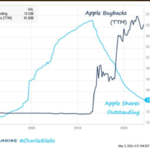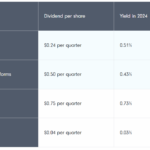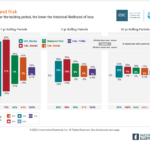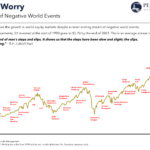The U.S. ETF industry has exploded in size in the past few years. As of July, 2014 over 1,300 ETFs are domiciled in the U.S. markets and the net assets of these ETFs exceeded a staggering $1.8 Trillion according to Investment Company Institute. ETF providers have sliced and diced the various sectors, countries, regions, etc. in various ways to create a multitude of funds. The ETF alphabetical soup keeps on expending with no end in sight as the demand for these products continue to soar.
With respect to ETFs for individual countries, in the past there was usually a single ETF from iShares. Today an investor have the option to go deeper than the country level using ETFs. For example, one can gain exposure to German firms with the iShares MSCI Germany ETF(EWG). While EWG is mostly composed of large-cap firms, a potential investor looking to access small cap firms in Germany can use the Shares MSCI Germany Small-Cap (EWGS) that targets that sector. Similarly iShares has the broad-based Brazil ETF(EWZ) and its small cap cousin iShares MSCI Brazil Small-Cap (EWZS). Other ETF companies also have similar funds targeting specific sectors of a market.
Instead of a single country, an investor can also access a whole region using a single ETF. For example, the SPDR EURO STOXX 50 ETF (FEZ) gives exposure to the 50 large cap firms from countries in the Euro area.
It is easily possible to cover the whole international equity market universe using ETFs. So does investing in individual foreign stock makes sense any more?. The answer to this question is absolutely yes. Though ETFs have several advantages there are plenty of reasons to still hold individual stocks in a portfolio as opposed to simply building a portfolio full of ETFs. The following are some of the reasons why investors should still invest in individual companies:
- Some ETFs can be highly concentrated by having most of their assets in just a few firms since ETFs usually track an index. This is risky and an investor can avoid this risk by going with individual firms.
- By investing in individual stocks that pay dividends one can earn the full dividends paid after the deduction of any withholding taxes.However with ETFs the dividends will be reduced a little since the ETF provider charges a fee for the management of the fund.
- Investing directly in stocks eliminates the fees (or expense ratio) charged by fund companies. Even if the fee is just 0.48% it still adds over the long term. By buying stocks directly the full investment amount goes to work for the investor.
- By giving the money to a fund provider, one loses the freedom to choose and invest in any company or industry they like or vice versa. For instance, many Asian ETFs may have huge allocation to Japan even though Japanese stocks are notorious for going nowhere. An investor can ignore Japanese stocks if they choose to by investing in individual stocks excluding Japan.
- ETFs are good for trading but not necessarily suitable for long-term holding. This is because these funds by definition meant for trading and are marketed that way. Due to fees, some lack of liquidity and other reasons ETFs are not the ideal vehicle for long-term investment.
- By holding stocks an investor can receive all of the dividends paid as a qualified dividend if they held the asset for more than a year. But with ETFs most the dividends may be termed as ordinary dividends since the assets are held for shorter periods. The tax consequences adversely impacts the holder of an ETF as opposed to an individual stock investor.
ETFs are great tools for certain situations such as trying to access a market that is very difficult to access via individual stocks. For instance, the Market Vectors Vietnam ETF (VNM) is a simply way to invest in Vietnamese firms. Since none of the companies trade on the US markets this ETF provides an opportunity to access the Vietnam equity market. However in general ETFs cannot be replacement for individual stocks. The ideal way to use ETFs is to use them to access a hard-to-access market or fill any gaps in a diversified portfolio.
Disclosure: No Positions



